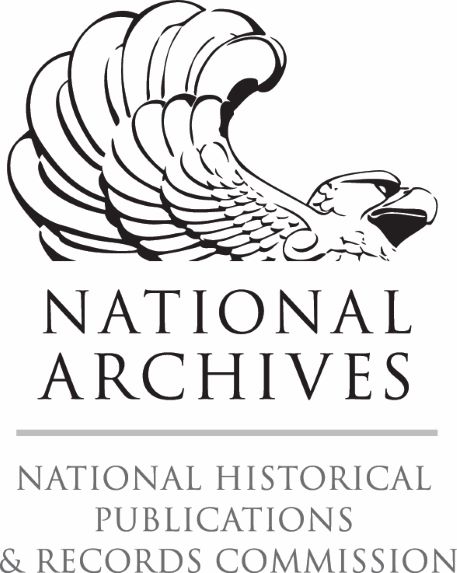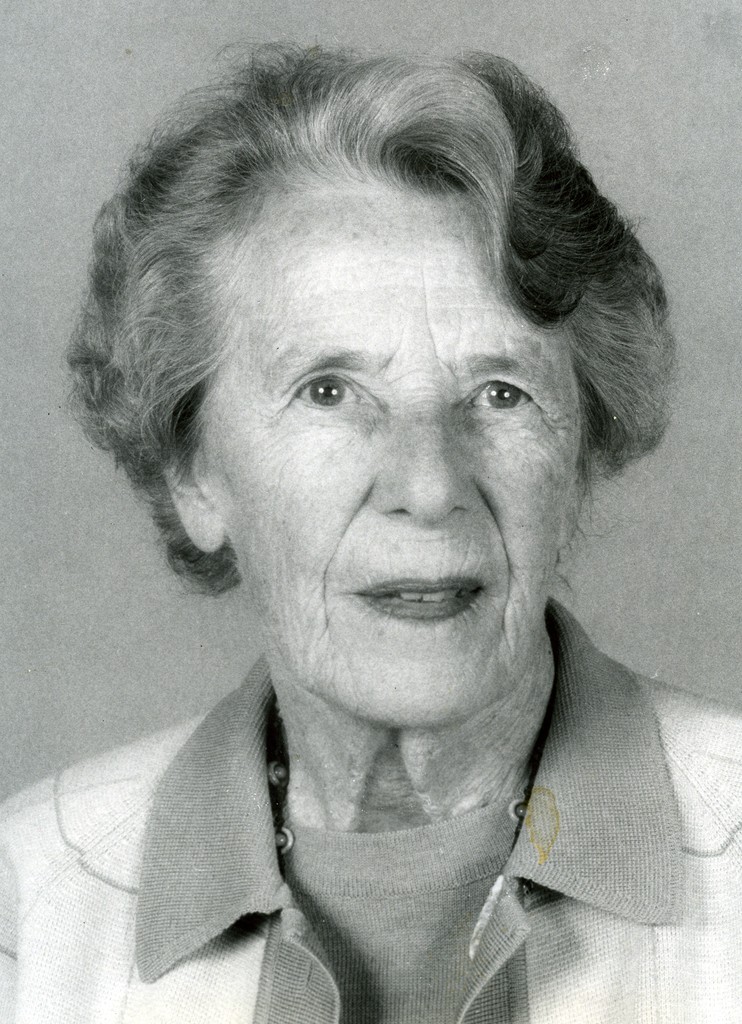UCSF Archives & Special Collections (A&SC) is excited to announce that it was awarded a grant by the National Historical Publications and Records Commission (NHPRC) in support of the project titled Pioneering Child Studies: Digitizing and Providing Access to Collection of Women Physicians who Spearheaded Behavioral and Developmental Pediatrics.
The $149,814 award will support the creation of a digital collection on Calisphere containing materials from five collections held at UCSF documenting life and work of five women physicians and social workers, Drs. Hulda Evelyn Thelander, Helen Fahl Gofman, Selma Fraiberg, Leona Mayer Bayer, and Ms. Carol Hardgrove, who were pioneers in the developmental-behavioral pediatrics research, patient care, and public-health policy. These materials will enable researchers and general public to understand evolution of social policy and cultural norms as they relate to special education, people with disabilities, and equitable access to health care.
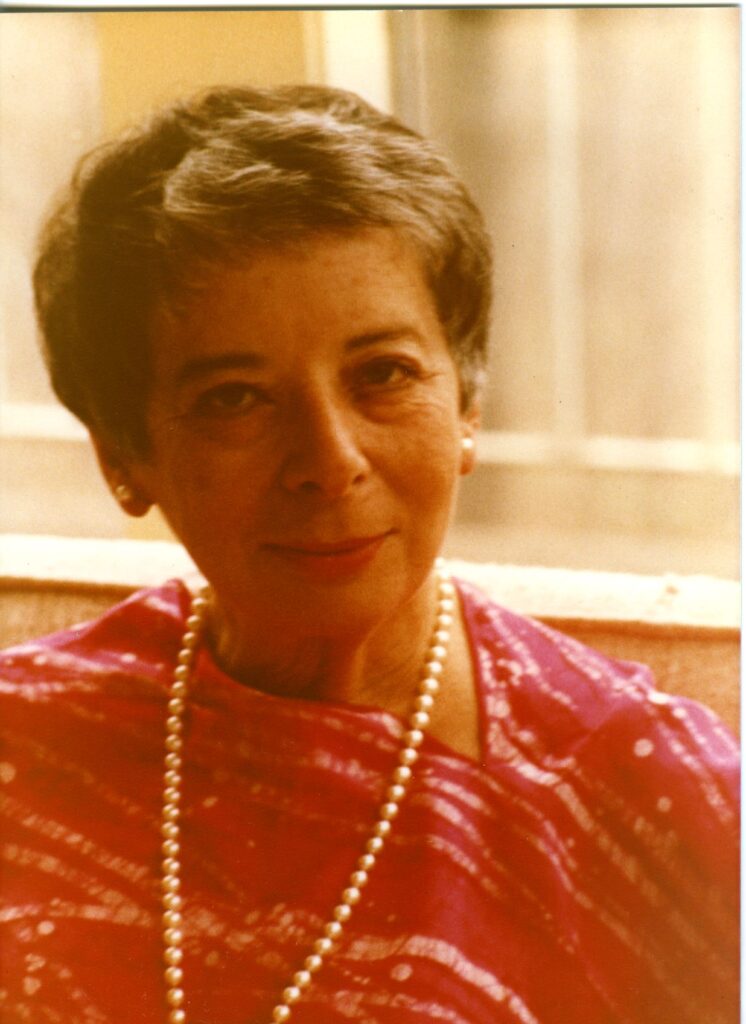
In her support letter for this project Dr. Alicia F. Lieberman, the Irving B. Harris Endowed Chair in Infant Mental Health and Vice Chair for Academic Affairs at the UCSF Department of Psychiatry, and Director of the Child Trauma Research Program stressed that this grant is extraordinarily timely because these women physicians and social workers “have been trailblazers in creating new knowledge and revolutionizing clinical care, but their contributions are at risk of being neglected or overlooked. These five women excelled against enormous odds in fields where women had difficulty establishing their own independent contributions, and the long-term ramifications of their work continue to benefit millions of children worldwide.”
A relatively new field in medicine, developmental-behavioral pediatrics came out of an increased demand for mental health services in pediatric care starting in the 1920s. While infant and child mortality rates declined in part due to public health campaigns and medical breakthroughs, concerns over behavioral problems and developmental delays grew as pediatrics began to look beyond mere survival and started to consider the whole child.
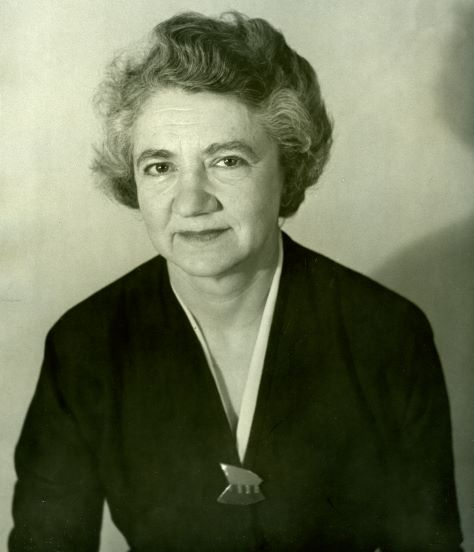
“These five women,” says Dr. Jeffrey L. Edleson, Professor and Harry & Riva Specht Chair Emeritus in Publicly Supported Social Services in the School of Social Welfare at the UC Berkeley, “studied and practiced in the same time period and were instrumental in establishing and developing training programs for pediatricians, nurses, and social workers. All of them also published works for the general public addressing issues that emerged at that time and continue to be discussed today, including the role of the mother in the early life of the child, emotional life of children and the importance of including the whole family in pediatric patient care.
A digital collection unifying the records of these five remarkable women scholars […] will benefit historians of medicine and public health, sociologists, educators, social workers, policymakers, health care providers, patient advocates, and parents.”
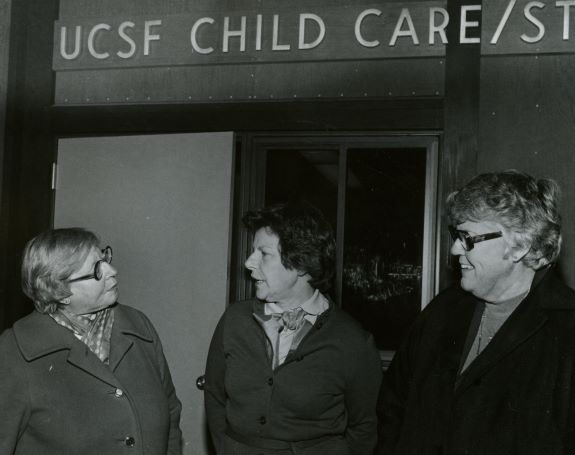
Documents from these five collections often illustrate the work of their creators on the same or similar projects and collaboration between the creators; these will be digitally “reunited” in the course of the grant by being posted on the same digital platform, Calisphere and being linked through extended metadata. They speak to the contribution women made early on in developmental-behavioral pediatric clinical research through the papers of Dr. Thelander. In 1952, she founded the Child Development Center at the Children’s Hospital of San Francisco where she conducted studies on children with brain-damage and general pediatric neurology. These women were influential in the training of pediatricians as documented by the records of Dr. Gofman. Since 1966 she served as a director of the Child Study Unit at UCSF, one of the first training programs in behavioral pediatrics in the US. The papers of Dr. Fraiberg document several important aspects of developmental-behavioral pediatrics, including the influence of psychoanalysis on the field and her groundbreaking work on intergenerational transmission of trauma. These women were also instrumental in the evolution of pediatric nursing. Ms. Carol Hardgrove collection documents her role as an educator with the School of Nursing and Child Care/Study Center who authored many works dealing with children and parents and the hospital experience. The collection also features professional correspondence of Dr. Leona Mayer Bayer whose life’s work was focused on child development and in particular human growth and psychology of sick children.
According to Dr. Andrew J. Hogan, Associate Professor and Director of the Science and Medicine in Society Program at Creighton University, “Filling in these silences and gaps in the historical records, by making available more widely their various ideas, aspirations, and institutional negotiations, will allow this story to be told in much fuller detail. Gofman, Thelander, and others’ stories are likely to inspire another generation of groundbreaking young physicians to organize care for populations in need. It will be valuable for students and researchers to learn more about the many challenges that these women physicians faced, and how they overcame them to provide improved resources and support for children with behavioral and developmental conditions and disabilities, a population that was historically overlooked in pediatrics, especially in the mid-20th century, when these women were professionally active.”
As part of this project UCSF archivists will engage with communities of women physicians, researchers, and health care providers, discussing how to document their voices that have been underrepresented, absent, or excluded from the history in general and history of their institutions (including UCSF) or professions in particular. By collecting their stories and learning how to document and share them, we will create a more inclusive and equitable historical record.
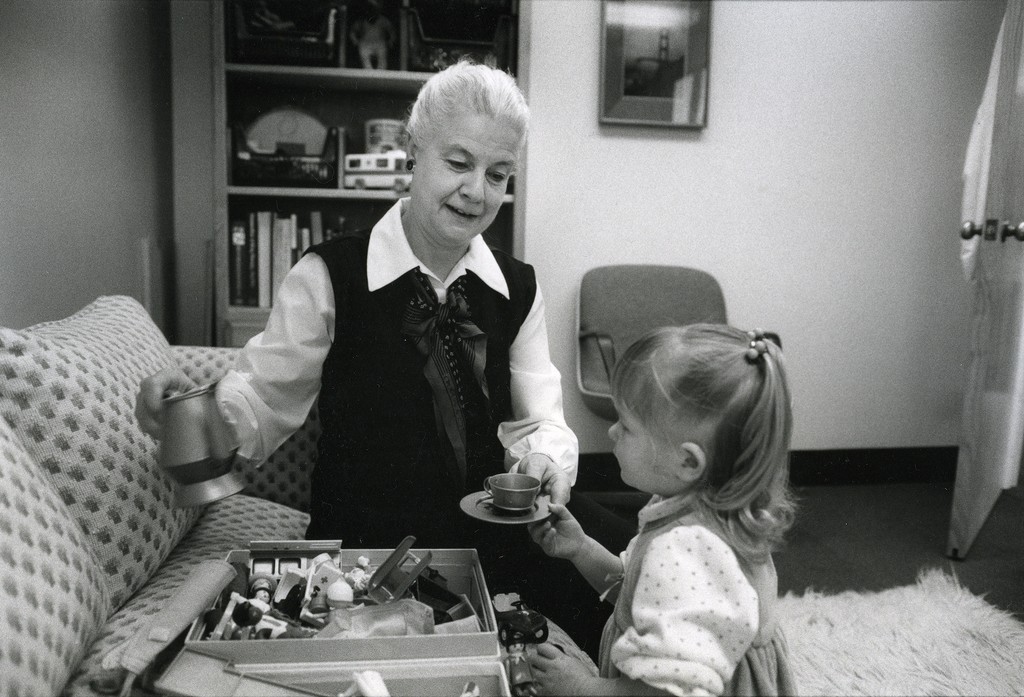
This 24-month project was launched in September and will be managed by our processing archivist, Edith Escobedo. The materials will be digitized by the UC Merced Library’s Digital Assets Unit that has been partnering with UCSF on successful collaborative digitization projects for more than 10 years.
A&SC would like to thank the National Historical Publications & Records Commission; the California Historical Records Advisory Board; Dr. Aimee Medeiros, assistant professor in the Department of Humanities and Social Science at UCSF; Emily Lin, Head of Digital Curation and Scholarship, UC Merced Library; and other supporters for their help with this proposal.
About UCSF Archives & Special Collections
The mission of the UCSF Archives and Special Collections is to identify, collect, organize, interpret, and maintain rare and unique material to support research and teaching of the health sciences and medical humanities and to preserve institutional memory. Please contact Polina Ilieva, Associate University Librarian for Collections with questions about this award.

